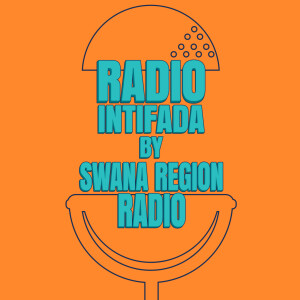
Genocide in Gaza: The West Bank with Dr. Rana Barakat
 2023-11-06
2023-11-06
SWANA Region Radio talks with Rana Barakat, a professor of history and contemporary Arab studies at Birzeit University, near Ramallah, in occupied Palestine. As the brutal Israeli assault on Gaza rages on, with now close to 11,000 Palestinians killed and over 25,000 injured with minimal hospital care available, we talk with her about the situation on the West Bank, where killings by the IDF and armed settlers—recently supplied with more weapons by the openly fascistic Israeli Minister of National Security, Itamar Ben-Gvir—have greatly increased, where dispossession of Palestinians is taking place on an accelerated scale, and where there have recently been multiple Israeli incursions on Hebron, Nablus, Bethlehem, and especially Jenin refugee camp, some of them including aerial bombardments and bulldozing of streets and buildings. Hundreds of Palestinians have been arrested, 129 have been killed, including numerous children.
A couple of weeks ago, as the result of what The Guardian has described as “a months-long campaign of violence and intimidation that intensified after October 7“, the Bedouin inhabitants of the village of Ein Rashash were driven out by settler terrorists. Such incidents of ethnic cleansing are only a sample oft he long campaign of settlement, intimidation and displacement that has been ongoing on the West Bank since 1967, often accelerating under the cover of Israel’s more open wars on Gaza.
Today we speak with Rana Barakat to get some sense of what is happening on the West Bank and how people are responding there.
Rana Barakat is Associate Professor of History and Contemporary Arab Studies at Birzeit University in Palestine and Director of the Birzeit University Museum. Her research interests include the history and historiography of colonialism, nationalism, and cultures of resistance. She earned her Ph.D. in history from the University of Chicago and is currently completing a book monograph, "The Buraq Revolt: Constructing a History of Resistance in Palestine", which argues that this revolt was the first sign in the Mandate period of sustained mass resistance to the settler-colonial project. She is at work on another book on time, space, and memory in Palestine that focuses on the people and place of Lifta village over time.
More Episodes
 2024-10-07
2024-10-07
 2024-08-05
2024-08-05
 2024-07-08
2024-07-08
 2024-05-20
2024-05-20
 2023-12-31
2023-12-31
Create your
podcast in
minutes
- Full-featured podcast site
- Unlimited storage and bandwidth
- Comprehensive podcast stats
- Distribute to Apple Podcasts, Spotify, and more
- Make money with your podcast
It is Free
- Privacy Policy
- Cookie Policy
- Terms of Use
- Consent Preferences
- Copyright © 2015-2024 Podbean.com




